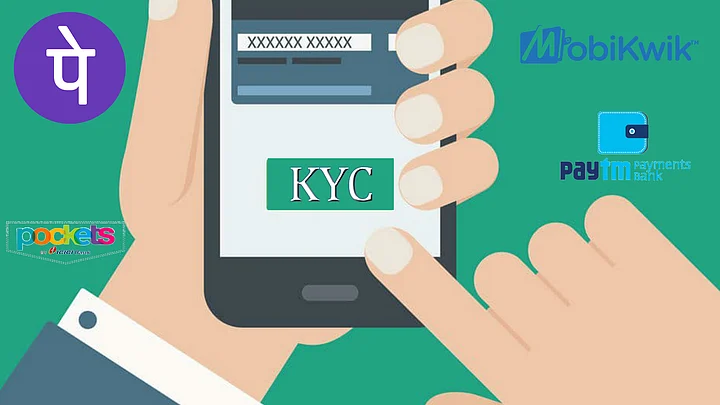Most of you were probably relieved to hear that the Supreme Court extended the deadline for people in India to link their bank accounts and mobile numbers with Aadhaar. But luck has deserted prepaid wallet players like Paytm, MobiKwik and banking institutions like HDFC and ICICI, which have similar apps.
Too caught up to read? You can listen to this story instead
Many people thought they could delay getting their know your customer (KYC) process done for these apps, but it seems like the story hasn’t panned out in that fashion.
And why is that? Well, firstly, the guidelines for KYC of prepaid wallets was first floated in 2017, by the Reserve Bank of India (RBI), with a deadline of 31 December 2017 for users to comply.
Without getting the KYC done, users cannot send money to other people, or transfer money back to their account. They can be only used with services like Uber and Zomato among others.
This deadline was further extended to 28 February, which still meant there was pressure on users to get their due process done, and it also put wallet players on overtime to get their user base sorted out.
Managing a user base of over 150 million and completing their KYC process was always going to be a tough ask, and this has been clearly pointed out by Paytm and MobiKwik among others.
But looks like most wallet players are pushing users to opt for Aadhaar and OTP to link their accounts. This, according to them, is supposedly convenient as well as safer.
KYC Process Not Made Easy
Users don’t really agree with the pain points (due to high volume of KYC requests) shared by the wallet players, and many have shared their displeasure with the wallet players via Twitter over the past week. They’ve even threatened to stop using the apps.
Some people have also said that KYC has strangely opened up their Paytm Payment bank account also.
We at The Quint tried reaching out to Paytm and MobiKwik to identify the challenges they’re facing to get the users over the KYC line, but both of them refused to talk on the matter.
The inconvenience has been rightly conveyed and wallet players have every right to feel let down by the administration. However, it doesn’t help that third-party agents brought on board have been entrusted to re-verify users by visiting them, and collecting their biometric IDs as well.
There have been instances reported by users who allege that even after opting for other documents for KYC, the agents are primarily seeking Aadhaar KYC process, which according to them is the instant way to get the verification done.
Wallet Loses, UPI Gains
The main reason for any success of wallets like Paytm and MobiKwik (other than demonetisation) was its ease of use with no physical effort required, and the offers of cashbacks that enticed people to its ecosystem.
While publicly no numbers have been shared, last reported by Medianama, digital payment figures state that Paytm with over 280 million users and MobiKwik with over 65 million users could see a fall in its numbers over the next month or so.
The recent KYC guidelines for wallet players could directly benefit the much publicised BHIM UPI platform, which is already being supported by established global giants like WhatsApp with Payment and Google with Tez. No wonder, the Paytm chief made a scathing attack against WhatsApp.
With UPI transactions seeing monthly growth, wallet players could find themselves stagnating, showing us yet again that cash is king, while digital forms of currency will just co-exist around it.
It is too early to predict the impact that the KYC process can have on wallet players in the long term, but signs aren’t pointing towards a positive return for them. That’s got to be worrying for them alright.
(At The Quint, we question everything. Play an active role in shaping our journalism by becoming a member today.)
